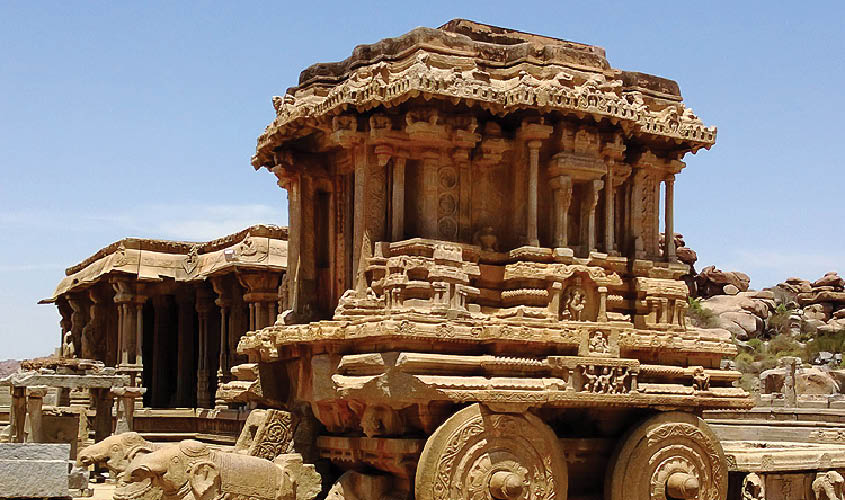A variety of cultural practices, intellectual traditions, religious contestations as well as questions of political patronage and abuse shape the cultural dynamics of medieval and early modern India. Our cultural heritage can be preserved to sustain pluralistic diversity that has come down to modern times. On the other hand, the significant cultural markers, including built heritage, can also be dismantled to create a society that is awfully ignorant of its own past. Some of the prominent features of crucial significance to the understanding of the cultural history of pre-modern India may be highlighted here.
- Religious movements: medieval and early modern Sufi-Bhakti complex preached peaceful coexistence and tolerance of other people’s religious beliefs and practices, which explains the amazing diversity we have inherited. In understanding these religious and cultural processes, we need to also take cognisance of cases of aggressive sectarianism, complex identity formation, questions of conversion and occasional attempts to abuse political power.
- Literary traditions: some accomplished historians have begun to survey a variety of literature in many languages across time and space. These include classical languages as well as a number of regional vernaculars, though in many cases the boundaries between classical and vernacularity as well as forms and genres collapse. Together, they reveal interesting ways in which literary works were produced, and show how authors and reading publics resorted to inter-textual cross-referencing. They also indicate the direction the emerging new literary histories can take for a more fruitful understanding of India’s vast literary traditions, especially how its past has shaped the present.
- Music and dance forms: art forms included expertise and excellence developed in wide-ranging fields of poetry, music and dance. Some people remain caught in misplaced belief in the myth of music being forbidden in Islam, whereas the evidence to the contrary abounds, both in theory and practice. Sufi hospices and royal courts have played significant role in the development of these art forms which must be properly recognised. Ghazal and qawwali come to mind, as does kathak.
- Festivities and little pleasures of life: with historians now working with a whole range of source material, it is possible to write interesting new history of food habits, consumption, bazaars and melas, as well as gender and bodily practices. Literary works of poets like Ja’far Zatalli and Nazir Akbarabadi can help us understand questions related to gender, besides speaking truth to power and celebrating multiple idioms of politics and culture.
- Visual cultures: pre-colonial rulers especially expressed grandeur and expressions of their power and sovereignty in architecture and paintings they sponsored. In this context, critical question of desecration of places of worship also comes to mind, which should not be hushed under the carpet, nor should they be abused in modern times for narrow political gains as we are now faced with in some cases. One can derive lessons from the past; attempting to take revenge for historical wrongs, genuine or rumoured, tantamounts to hara-kiri in society.
- Political patronage: pre-colonial India witnessed an inclusive framework of political ideas, theories and practices adopted by emperors like Akbar. By contrast, rulers like Aurangzeb drew on narrow sectarian ideologies, especially invoking the name of Sunni Islam for legitimising some of his outrageous political aggrandisement. Violence was possible in the wake of conquests and empire-building, but medieval works on political theory advocated minimum use of force under all circumstances.
Thus, historically, cultural diversity epitomises our civilisational character. On the other hand, destructive pulls of communalism and bigotry continue to hurt society fairly badly. However, for all we know, sanity prevails in the long run. Some key historical texts show enough light. They include many interesting versions of Ramayana and Mahabharata in Sanskrit and vernaculars; Adi Granth, or Guru Granth Saheb, which comprises devotional compositions of not only Sikh Gurus, but also of such iconoclasts as Sant Kabir and Punjabi Chishti Sufi, Shaikh Farid; Padmavat of Malik Muhammad Jaisi, which was in the news in recent past, is a fine example of Sufi poetry of love in Hindi in a genre called the premakhyan; Ramcharit Manas of Tulsidas, a powerful expression of Ram-bhakti in Mughal India; and Akbarnama and Ain-i Akbari of Abu’l Fazl, articulating Mughal political ideology on how to govern a vast sub-continental country with so much diversity, especially for resolving the question of religious assertions through emphasis on broad-based governing principles, conceptualised as peace with all. Together, they showcase what we cherish as the best in India’s inclusive political culture, devotional practices showing the way for peaceful coexistence, and remarkable achievements in the cultural arena, whether in the excellence in literary practices or in exquisite examples of the built heritage.
(Based on a lecture by the author at Amity University, Noida, recently.)

